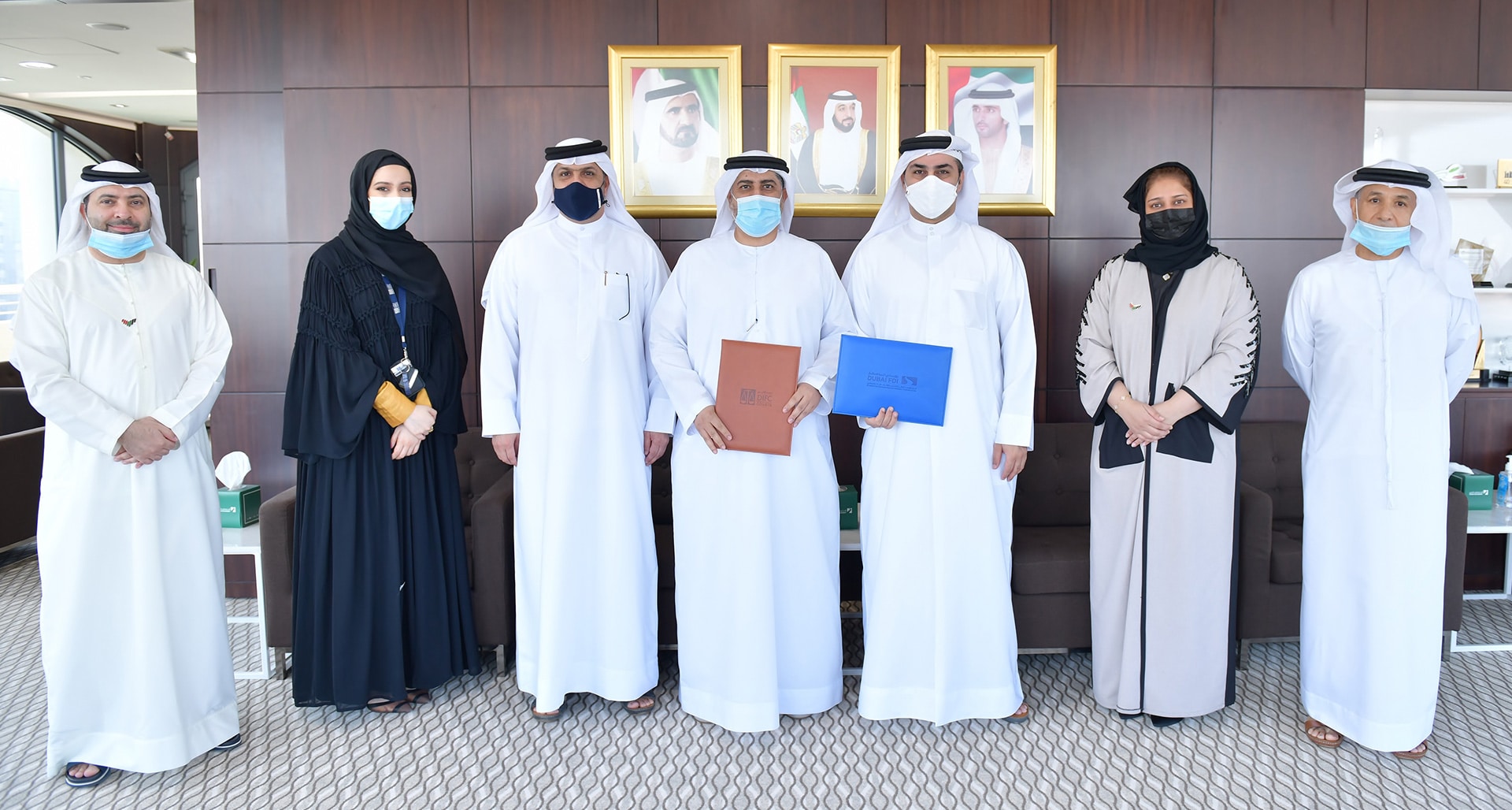
- Collaboration to focus on promoting Dubai as a centre of legal excellence, offering certainty to global investors and businesses operating in the Emirate
- Dubai attracted Dh12 billion in foreign direct investment (FDI) through 190 projects during the first half of 2020
Dubai, United Arab Emirates; 14 September 2020: The Dubai International Financial Centre (DIFC) Courts has signed a cooperation agreement with The Dubai Investment Development Agency (Dubai FDI), an agency of the Department of Economic Development (DED) in Dubai, to support the emirate’s economic ambitions outlined in Dubai Plan 2021.
Building on cooperation first initiated in 2015, the terms of the memorandum state that the two entities will continue to further collaborate on the exchange of information and research, and the hosting of joint conferences and exhibitions.
According to Dubai Investment Development Agency (Dubai FDI), Dubai attracted Dh12 billion in foreign direct investment (FDI) through 190 projects during the first half of 2020, despite the coronavirus pandemic. In terms of investment sources, nearly 25 per cent of FDI capital flows came from the US, followed by France (18%), Belgium (9%), and the UK and China (8% each).
As commerce becomes ever more global and countries ever more connected, it is imperative that judicial systems keep pace and remain able to support and protect businesses. And it was this basic requirement that led to the creation of the DIFC Courts in 2004.
The DIFC Courts is Dubai’s English language, commercial common law judicial system, with the specific objective to enable the international community to have greater confidence in the Emirate’s legal framework, and further strengthen the trade relations with Dubai.
HE Omar Al Muhairi, Deputy Chief Justice, DIFC Courts, said: “The DIFC Courts has recognised the need for our dispute resolution services to meet the demands that are challenging traditional disciplinary and geographical boundaries. When it comes to resolving disputes, businesses like to have a choice, whether it is litigation or arbitration, common or civil law, English language, or Arabic. While every country in the world has some kind of system for resolving commercial disputes, those ranked highest by the World Bank have recognised that investing in efficient and well-respected business courts, is essential. This is not a nice-to-have, but rather a need-to-have if they want to compete globally for investment.”
Fahad Al Gergawi, Chief Executive Officer (CEO), Dubai FDI, said: “One of the major platforms that have supported Dubai’s continuing growth in FDI capital is a legal system that connects seamlessly with multiple jurisdictions around the world. Global investors and businesses recognise the importance of an advanced and mature legal framework for dispute resolution. This is especially true for multi-jurisdictional corporations. The DIFC Courts has professionally been upgrading this value for the city which we will continue to emphasise on in our efforts to attract strategic FDI to Dubai.”
Dubai ranks first in the Middle East and North Africa (MEA) region and third in the world in the number of foreign direct investment projects attracted and ranks first in the Middle East and North Africa region and sixth in the world in terms of foreign direct investment capital inflows, after Singapore, Shanghai, London, New York, and Hong Kong.
For over a decade the DIFC Courts has a track record of resolving all commercial disputes, ranging from sophisticated, international financial transactions, to simple domestic contractual and employment disputes. Big business can – and increasingly does – bring its disputes to Dubai.
Through a series of memoranda with leading international jurisdictions the DIFC Courts has now established one of the world’s strongest enforcement regimes. Money judgments can be enforced internationally through treaties such as the GCC Convention and Riyadh Convention, conventions with China, India and France, and reciprocal arrangements with leading common law jurisdictions, such as the UK, the US, Australia, Singapore, and Hong Kong.